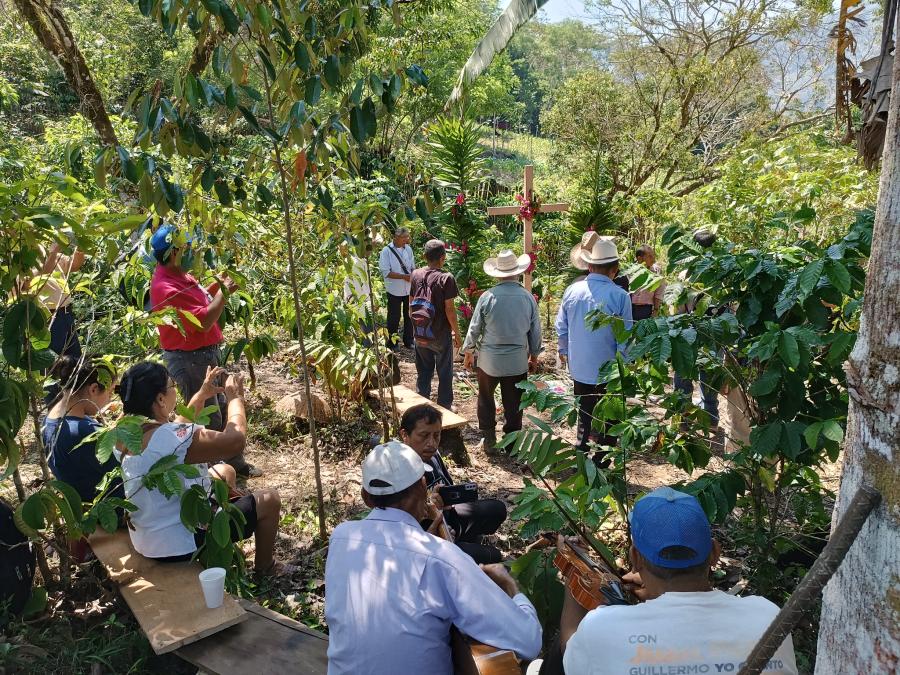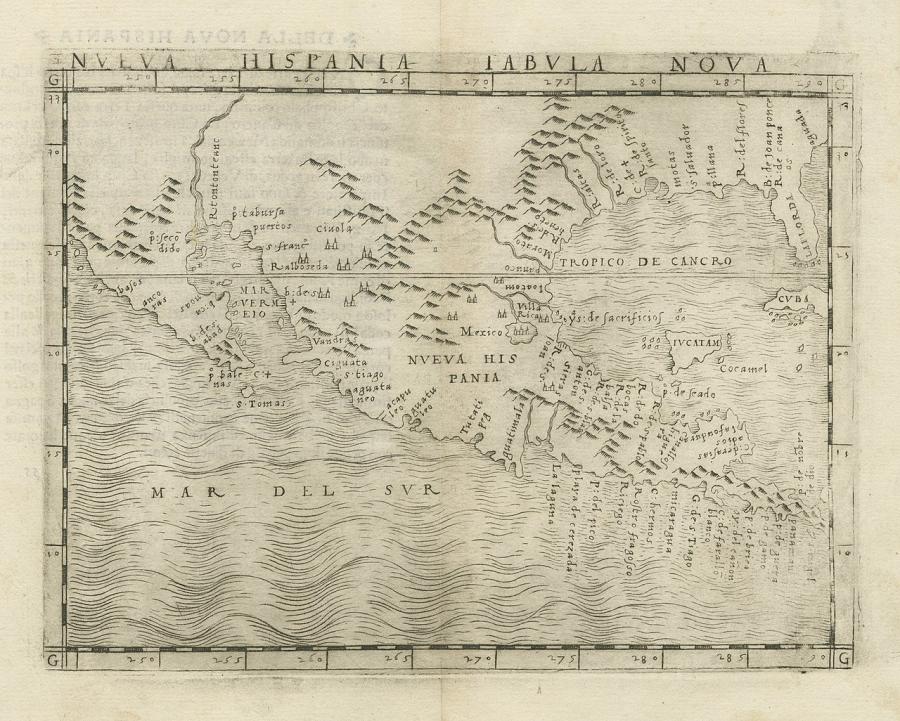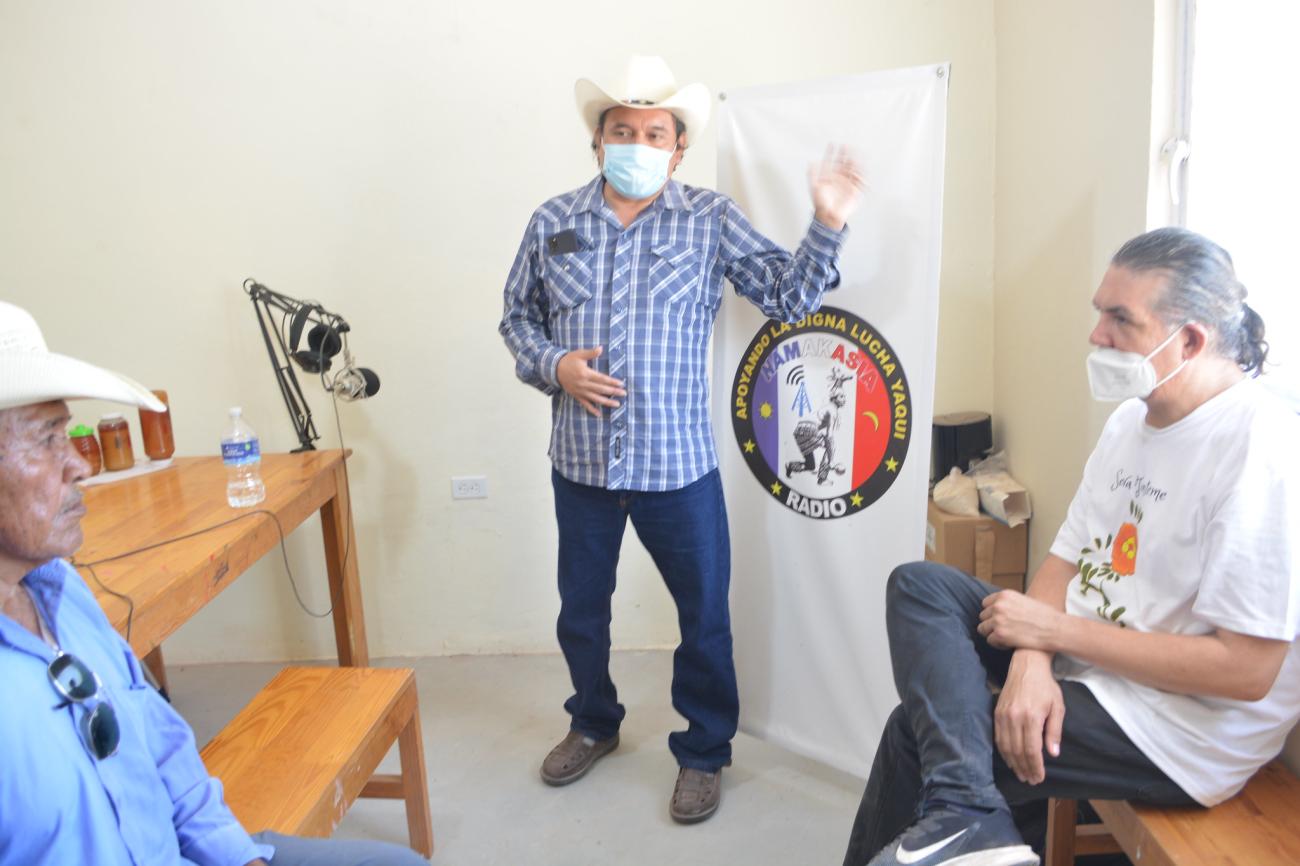
By Guadalupe Pastrana (Nahua, CS Staff)
Located in the state of Sonora, Mexico, the Yaqui Tribe is an Indigenous Nation made up of eight Peoples who share the same territory, language, and culture. Also, a long history of struggle and resistance unites them, first against the colonial government and later against the Mexican State which led to attempts at dispossession and extermination.
Today, the Yaqui Tribe continues to fight and defend the continuity of their lifeways for its present and future generations. The looting of their resources and the harassment of their members was not by choice, on the contrary, the Yaqui Peoples are experiencing a new wave of violence that has left many imprisoned and their leaders assassinated.
Cultural Survival recently spoke with Mario Luna Romero (Yaqui), spokesperson and second secretary of the town of Vícam, as well as coordinator of the Namakasia community radio. Luna Romero made it clear that for the Tribe “the mandate is to take care of the territory, conserve it together with everything that lives and coexists in it, that is, the fauna and flora, what is seen, and what it is not seen.”
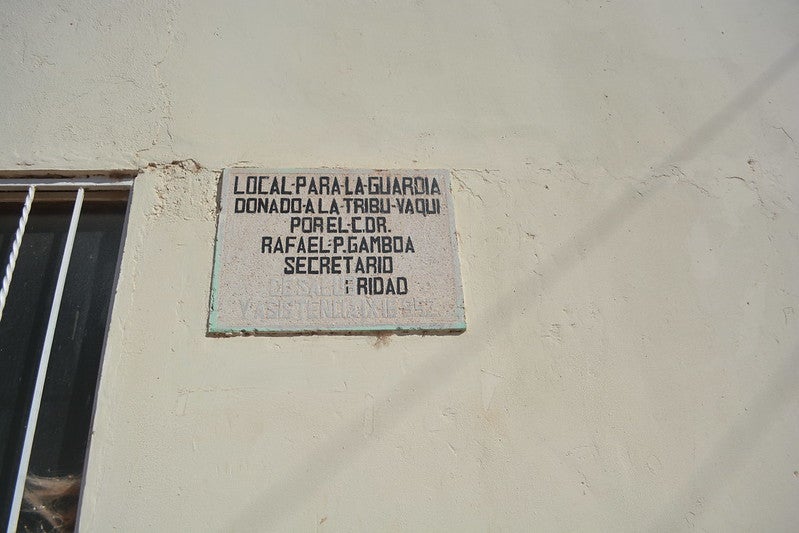
Repeating the Past
At the end of the 19th Century, the Yaqui Tribe faced one of the most intense extermination efforts by the Mexican State. With Porfirio Díaz in command, the Mexican State issued an open call to “colonize” the Yaqui and Mayo Valleys, and based on the Lerdo Law, it ignored the titles that protected the possession of the Yaqui Peoples over their territories. Faced with this call to invade territories that since ancient times belonged to the Tribe, the Yaqui Peoples took up arms in 1882 and for several years they faced federal troops who tried to do away with them. The persecution weakened the Yaqui community. Hundreds of Yaqui boys, girls, men and women were captured and sent to work as enslaved people on henequen (agave) estates in southeastern Mexico, as was reported by the American journalist John Kenneth Turner in Barbarian, Mexico.
In recent months, this attempted genocide against the Yaqui Tribe has once again become relevant. On September 28, 2021, in Vícam, Sonora, the Mexican government carried out an act of "Appeal for forgiveness to the Yaqui people" within the framework of of the so-called Justice Plan for the Yaqui Peoples, which according to official statements seeks, among other things, "to redress the injustices committed against this people," including the persecution led by the Porfirio Díaz government.
Mario Luna Romero and other members of the Tribe remain critical of the Justice Plan for the Yaqui Peoples. They comment that the current Mexican government talks about repairing past damages but forgets to end the dispossession and violence that exists in the present. “They offer apologies for actions against our people, but they are only limited to the past. They speak of the Porfiriato, of the conquest, but they do not speak of post-revolutionary Mexico, or of modern Mexico, or of the present, in which the same atrocities continue to be repeated,” Luna Romero told Cultural Survival.
And it is that we must remember that another problem facing the Yaqui Tribe is a new wave of violence against them. In May 2021, Tomás Rojo Valencia, a Yaqui leader, was assassinated; in June, Luis Urbano was assassinated and in July, ten members of the Tribe were kidnapped when they were leaving the town of Loma de Bácum. In addition, Fidencio Aldama, a Yaqui political prisoner, has been imprisoned for five years and is accused of murder. Luna Romero was imprisoned for a year without having committed any crime and to date, he has not received fair compensation.
“Deaths like Tomás Rojo’s were totally invisible. How are they going to bring justice to the mothers, the fathers, the wives of the disappeared? Their names are not even mentioned, they do not exist for them, that is not justice. So it is very difficult to believe in an initiative of this type when obviously you leave the strongest on the outside,” Luna Romero commented in relation to the act of “Appeal for forgiveness to the Yaqui Peoples” carried out in Vícam.
In addition to the aforementioned request for forgiveness, the Justice Plan for the Yaqui Peoples includes paying attention to the Tribe's historical claims "on land and territory, water and the environment." One of the most important struggles of the Yaquis is for the defense of their river, the Yaqui River, whose waters are being looted and taken to the city of Hermosillo, Sonora, through the Independencia aqueduct, which is responsible for the shortage of water in eight Yaqui communities. “They are not repairing the current damages. They did not stop the looting of the water that is taking place through the Independence aqueduct,” Luna Romero commented and added that despite the existence of a 2013 ruling of the Supreme Court of Justice of the Nation (SCJN) to stop the operations of the aqueduct, it continues to function normally today.
The solution proposed by the Mexican government to solve the problem of water scarcity facing the Yaqui Tribe is the creation of a new irrigation district, District 18, which according to official statements “will be transferred to the Yaqui people for their administration, use, and collective enjoyment.” Luna Romero mentioned that “telling the Tribe that they are going to be given more water is generating high expectations, knowing that there is no water available. They say they will give the Tribe almost 700 million cubic meters of water a year and everyone applauds because of course we want more water, but you come back to reality and say: ‘Where's the water?’ The problem is that they have admitted users of the river at their discretion and have granted concessions that exceed the capacity of the water source.”
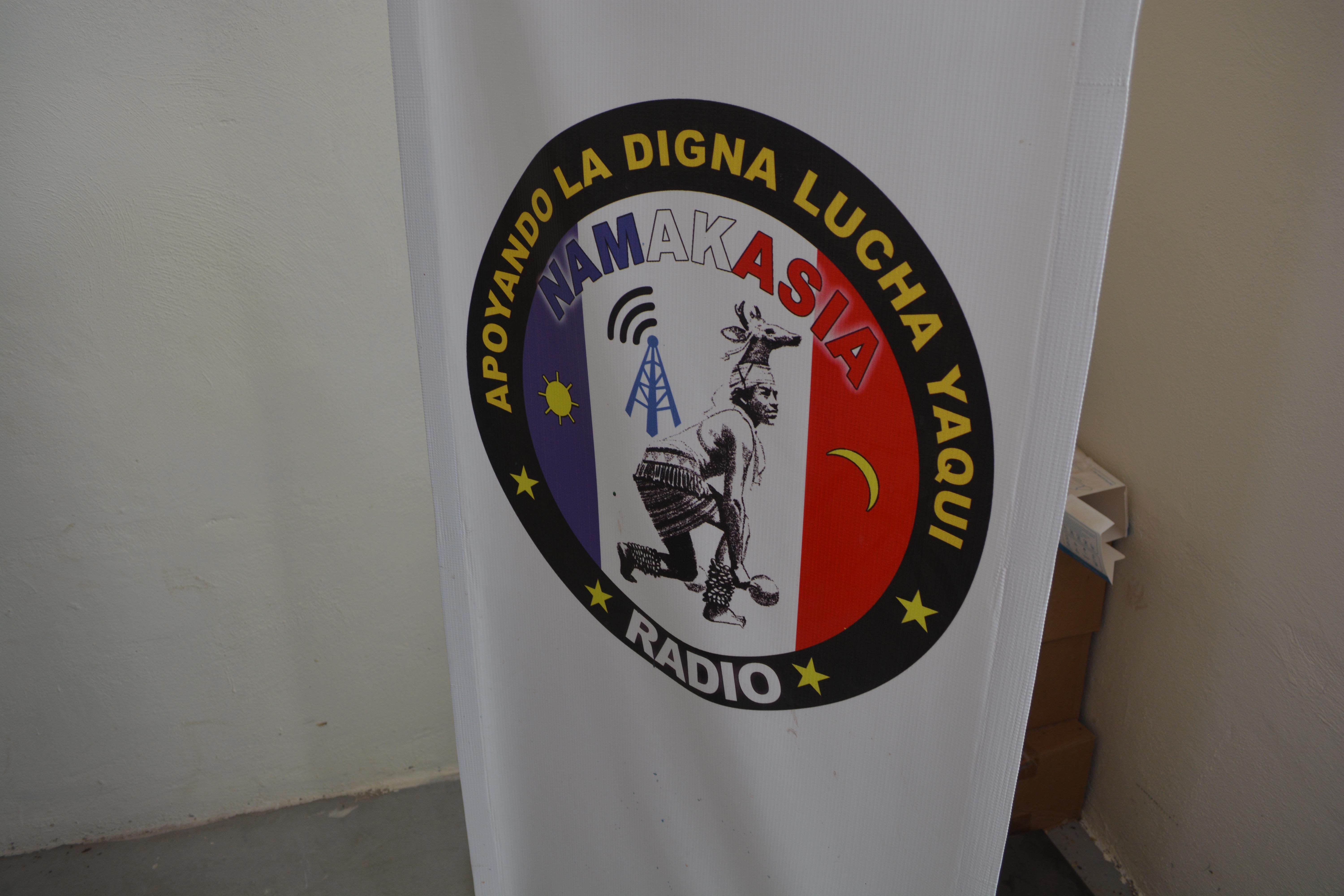
The Land is the Heart of the Peoples
When we ask Luna Romero about how the Yaqui Tribe has managed to survive despite multiple extermination attempts, how they have maintained their language, their identity, and their own organizational and government forms, he answers that it has been possible because the Tribe has the mandate of protecting their territory to continue existing. He adds that for this reason, they have "undertaken the defense of the territory at different junctures, defenses that have implied the loss of life, bloodshed, and tears for men and women."
The conservation of the territory is a responsibility assumed by all the members of the Tribe. It is a mandate that has been transmitted from generation to generation and that falls with greater force on the traditional authorities. “At the time when the Elders, the traditional authorities, take command, they are also given the power to speak for those who have no voice. Who has no voice? The animals, the plants, the mountains, the river, the sea. It is because of them that we are working as authorities, always thinking about that commandment that they are granting us,” Luna Romero shared.
For the Yaqui Tribe, the conservation of the territory —with everything that coexists in it— is the center of their struggle, protecting the land, water, flora, and fauna is to ensure the continuity of life. “The Yaqui recognize and identify the territory as the heart of all this. Without territory you can hardly develop your language, you can hardly have food sovereignty, nor can you guarantee your children a place to live. And obviously in this territory is where we have our deities, our beliefs, our places of communication with what is not seen”, concluded Luna Romero as he continues to demand just and true compensation for his Indigenous Nation.

